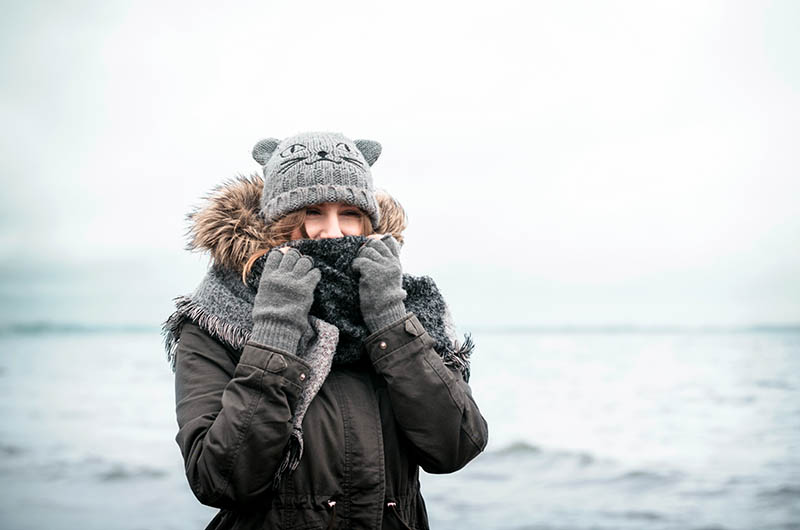
Winter is here, so it’s important to remember to protect your ears from the cold weather. Our ears are mostly made of cartilage and have very little insulating fat, which makes them vulnerable to the cold. Besides, the sensitive tissue in the ear canals can get irritated due to cold weather, leading to earaches. If you work in a cold environment for extended periods, it’s essential to prioritize your ear health.
Cold Weather and Ears: How the Cold Weather Affects Your Hearing
If you spend time outdoors in cold weather without ear protection, you may be at risk of hearing loss. If your ears are frequently exposed to low temperatures, it can result in the growth of bony structures inside the ear canal, known as exostosis or “surfer’s ear.” This bone growth can harm your ear health and hearing ability. Exostoses narrow the ear canal, making it difficult to remove water, earwax, and dirt, which can cause ear infections and even permanent hearing damage.
Congestion and stuffy noses:
The Eustachian tubes serve a vital function by linking the middle ear to the upper throat and back of the nose. They regulate air pressure within the ear and prevent fluid accumulation in the middle ear. However, if one has a cold or head congestion, the mucus and fluid from the nose can obstruct the Eustachian tube, leading to discomfort or pain. In most cases, this resolves naturally as the cold subsides, but there are instances where it may escalate to secondary ear infections.
Middle Ear Infection:
One of the most common complications of the common cold is a middle ear infection, also known as otitis media. When viruses or bacteria in your throat and nose enter your ear through the eustachian tube, they can cause fluid buildup in the middle ear. These infectious particles can multiply in this accumulated fluid, resulting in such symptoms as:
• Ear pain
• Fever
• Redness
• Swollen ears
• Hearing difficulties
• Green or Dark yellow or nasal discharge
Sinus Infection:
Persistent colds can result in sinus infections, medically referred to as infectious sinusitis. This condition is marked by inflammation in the sinuses and is typically accompanied by symptoms such as ear pressure and earache.
• Poor sense of smell
• Difficulty breathing through the nose
• Green or yellow nasal discharge
• Bad breath
• Toothaches
• Headache
• Cough
• Ear pain and pressure
• Fever
Protecting Your Ears in the Winter
Earaches can be extremely uncomfortable. However, they can often be managed with appropriate care. For mild and temporary earaches, monitoring the situation and waiting for improvement is advisable. Over-the-counter medications such as ear drops may be helpful in certain situations. However, it is essential to note that a medical doctor should evaluate any earache that persists beyond a day or becomes increasingly uncomfortable. During the winter months, individuals can protect their ears from the cold by wearing appropriate and warm clothing such as ear muffs, hats that cover the ears, or jackets with collars turned up.
During the winter season, it is common to experience ear pain, which can exacerbate pre-existing ear conditions such as tinnitus. While the suggestions above may provide relief or prevent earaches, seeking medical attention if the pain persists or intensifies is essential to avoid further complications.